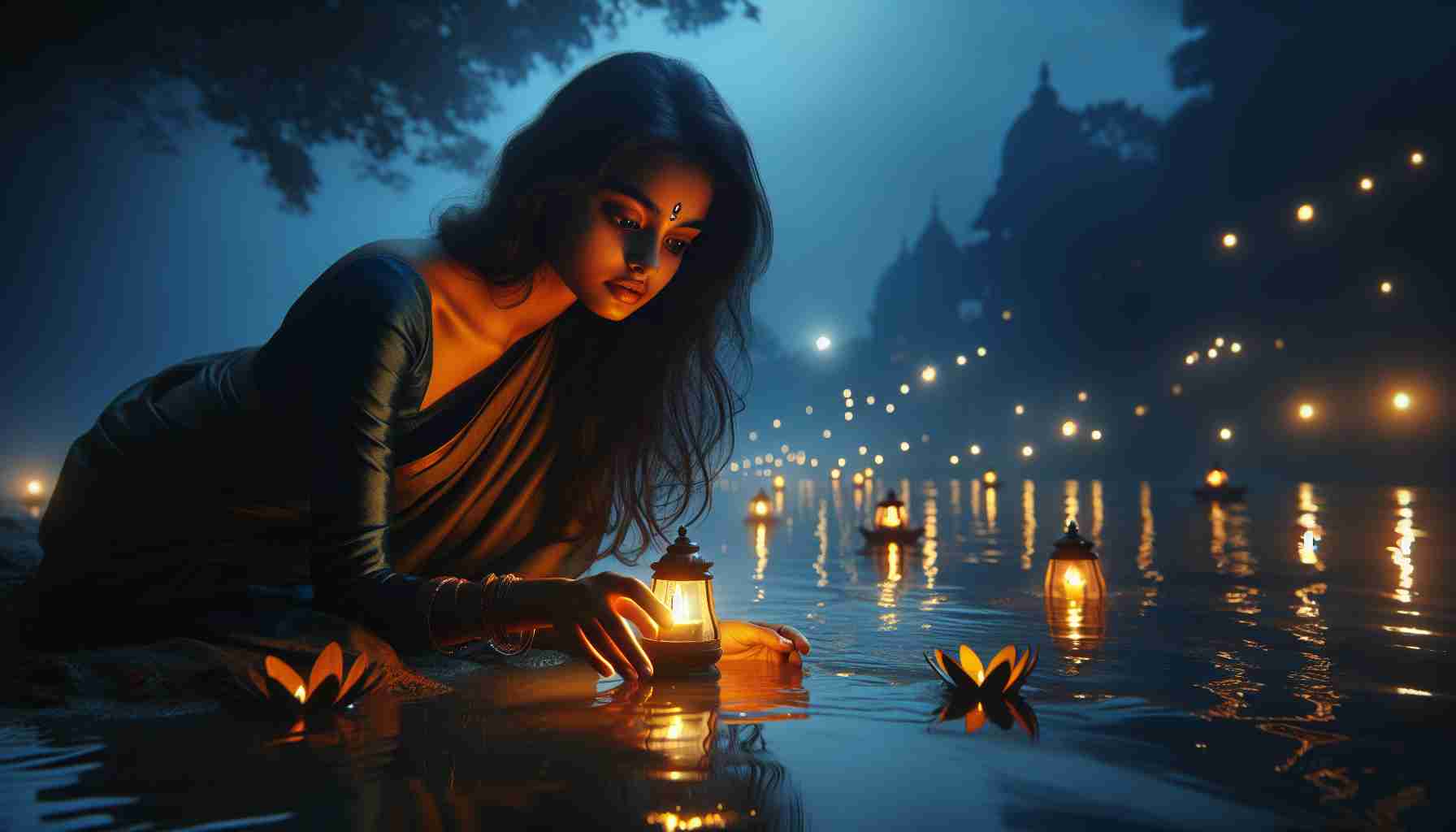

I am Meera, daughter of temple priests in Varanasi, where the Ganga flows like breath through our lives. I was raised on incense smoke and the promise that what is meant for us will arrive, when it should. But for years, I couldn’t believe that.
I was thirty-five and still unmarried in a community where girls often wed by twenty. Every wedding I attended was salt in an open wound. My cousins teased kindly. My neighbors offered proposals with men twice my age. My mother stopped speaking of grandchildren.
Was I forgotten by the Divine?
Every Kartik Purnima — the full moon night devoted to Lakshmi, goddess of wealth and auspiciousness — I would float a diya, a small lamp, down the Ganga. I whispered prayers I didn't admit aloud during the day: to be seen, to be known, to belong.
Last year, it rained. The festival was nearly washed out. But I still went.
I stood at the river’s edge, holding a trembling flame in my palm, my heart thick with questions I couldn't answer. The sky was grey, not starry; the rituals, quiet instead of celebratory. I was barefoot in the cold mud, angry and tired of waiting.
I knelt slowly. Placed the flickering diya on the water.
It refused to float.
Again, I tried. It tilted. Sank.
I wanted to scream.
Instead, I closed my eyes. The Ganga lapped against my knees, wetting my sari, and I remembered the verse from the Bhagavad Gita that my father used to recite after his morning bath:
"kālo'smi loka-kṣhaya-kṛit pravṛiddho" — “I am time, the great destroyer...” (Bhagavad Gita 11.32)
He would then add gently, "And so, Meera, never fight time. It is not your enemy. It is Him."
I breathed. My anger settled like silt.
Then, I noticed a child nearby — maybe six years old — struggling with her own diya. Without a word, I walked over and helped her balance it just right on a banana leaf so it wouldn’t tip. She smiled, nodded, and whispered, “It looks like a star.”
We stood together and watched her lamp drift peacefully.
Something shifted in me. Not like a thunderclap. More like a petal falling.
The next day, I met Arvind — a doctor from a neighboring city, there for a month-long service clinic. He had also come to the river that night, not for ritual, but to sit in silence. He had been grieving his father.
We started talking, then walking.
We were married within a year.
But this isn’t a story about marriage.
This is a story of that quiet in-between — the diya that sank, the verse that rose, a child’s kindness that reminded me: we are never behind. We are never forgotten.
The Upanishads teach: “When one is ready, the teacher appears.” I think the Divine appears too — in mud, in failure, in a child’s simple prayer.
You are exactly on time for your destiny.
Even when your lamp won't float.
I am Meera, daughter of temple priests in Varanasi, where the Ganga flows like breath through our lives. I was raised on incense smoke and the promise that what is meant for us will arrive, when it should. But for years, I couldn’t believe that.
I was thirty-five and still unmarried in a community where girls often wed by twenty. Every wedding I attended was salt in an open wound. My cousins teased kindly. My neighbors offered proposals with men twice my age. My mother stopped speaking of grandchildren.
Was I forgotten by the Divine?
Every Kartik Purnima — the full moon night devoted to Lakshmi, goddess of wealth and auspiciousness — I would float a diya, a small lamp, down the Ganga. I whispered prayers I didn't admit aloud during the day: to be seen, to be known, to belong.
Last year, it rained. The festival was nearly washed out. But I still went.
I stood at the river’s edge, holding a trembling flame in my palm, my heart thick with questions I couldn't answer. The sky was grey, not starry; the rituals, quiet instead of celebratory. I was barefoot in the cold mud, angry and tired of waiting.
I knelt slowly. Placed the flickering diya on the water.
It refused to float.
Again, I tried. It tilted. Sank.
I wanted to scream.
Instead, I closed my eyes. The Ganga lapped against my knees, wetting my sari, and I remembered the verse from the Bhagavad Gita that my father used to recite after his morning bath:
"kālo'smi loka-kṣhaya-kṛit pravṛiddho" — “I am time, the great destroyer...” (Bhagavad Gita 11.32)
He would then add gently, "And so, Meera, never fight time. It is not your enemy. It is Him."
I breathed. My anger settled like silt.
Then, I noticed a child nearby — maybe six years old — struggling with her own diya. Without a word, I walked over and helped her balance it just right on a banana leaf so it wouldn’t tip. She smiled, nodded, and whispered, “It looks like a star.”
We stood together and watched her lamp drift peacefully.
Something shifted in me. Not like a thunderclap. More like a petal falling.
The next day, I met Arvind — a doctor from a neighboring city, there for a month-long service clinic. He had also come to the river that night, not for ritual, but to sit in silence. He had been grieving his father.
We started talking, then walking.
We were married within a year.
But this isn’t a story about marriage.
This is a story of that quiet in-between — the diya that sank, the verse that rose, a child’s kindness that reminded me: we are never behind. We are never forgotten.
The Upanishads teach: “When one is ready, the teacher appears.” I think the Divine appears too — in mud, in failure, in a child’s simple prayer.
You are exactly on time for your destiny.
Even when your lamp won't float.